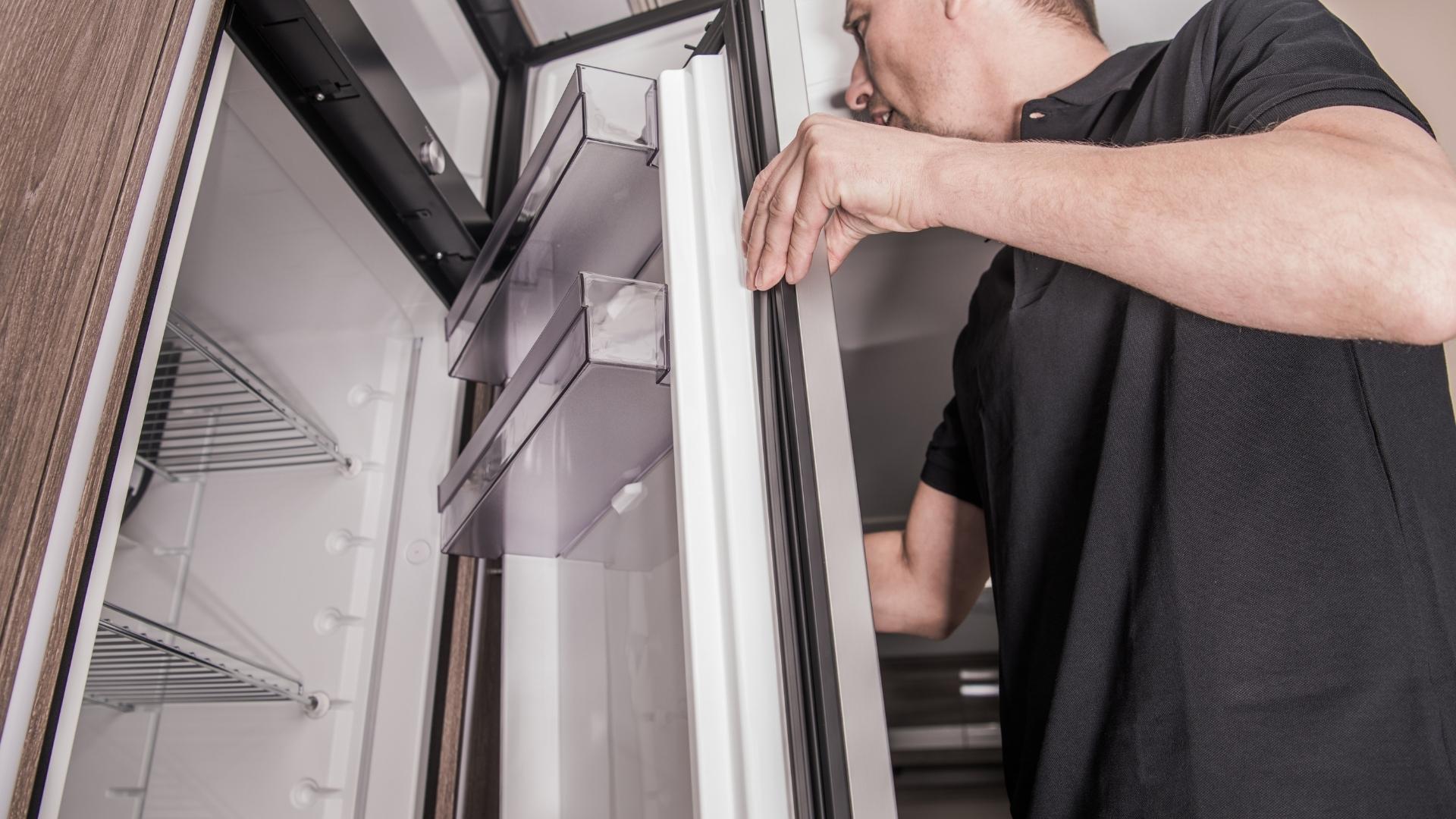Choosing an RV Fridge
Designed for RVers this fridge can operate in 3 ways: on electricity, propane or battery reserves. This allows for flexible power usage and avoids having to drain your house battery too much while you are traveling.
It has shelves that are easily adjustable or removable, which helps maximize storage capacity. It also features recessed door handles and hidden hinges for a streamlined appearance.
Size
The biggest thing to consider when choosing an RV fridge is size. You’ll want to measure the space where you plan on installing it, as this will help narrow your options. It also helps to know how much power you’ll have available, as this can impact what type of fridge you can use in your RV.
If you’re looking for a smaller option, check out the Dometic CD-50 Drawer Refrigerator. This is a perfect fit for shorter RVs, such as camper vans and cab-over campers. It uses a compressor to cool, which is more efficient than absorption models. This refrigerator is also great for those who love to boondock, as it can run on a regular power supply like propane or solar. However, if you’re planning on staying at developed campgrounds with electric hook-ups most of the time, then you may want to stick with a residential fridge that can run off an inverter and standard 12V DC power.
Style
There are a few different styles of fridges available to RVers. Some use compressor or absorption cooling to keep things cool, while others work by moving electrical currents in the fridge to bring warm air to one end and cold air to the other. These fridges tend to be smaller because they run solely off electricity and require an RV power inverter.
Residential-style refrigerators that only run off electric power are sometimes used in RVs, but most die-hard boondocking enthusiasts favor absorption fridges that can be powered by either mains power or propane gas. This allows them to stay off-grid for longer periods of time without having to lug around a generator or worry about noise restrictions at a campground.
Dometic offers a sleek-looking fridge that looks like it could be found in a modern home and features two produce “crisper” drawers and a separate freezer section. It also has a digital control panel with modes that increase energy efficiency and decrease noise levels.
Energy Efficiency
The refrigerator is the most energy-consuming appliance in an RV. It’s important to choose one that consumes as little power as possible if you want to save your battery bank.
Thermoelectric fridges use the most power, followed by absorption refrigerators. Absorption fridges can be powered with propane or electricity. However, they need an additional source of heat to boil the refrigerant solution. The heat can come from a separate element, a generator, or the RV’s propane gas.
If you’re planning to use a residential-style refrigerator in your RV, make sure you have an inverter that can run it on AC power when not plugged into shore power or your coach batteries. Otherwise, you’ll need a propane tank for backup and a way to store extra fuel. Moreover, a residential-style refrigerator can’t withstand the bumps and jostles of travel on an RV, which shortens its lifespan. This is especially true if the fridge is constantly running on propane.
Convenience
An RV residential refrigerator offers you the capacity, convenience and energy efficiency that you want. The problem is that installing one requires a serious level of handyman skills in cabinetmaking and wiring. It’s not something you want to tackle on your own.
A residential fridge is a great choice if you want to replace an absorption fridge that’s on its last legs, or if your current fridge doesn’t have enough room. However, it’s not a good idea to use an aftermarket residential fridge in an RV that’s already in motion on the road. The shaking and jostling will cause damage.
A residential fridge can run on AC power while your RV is plugged into shore power or a generator, and it can also run on propane when boondocking. Some models, called 3-way fridges, can switch between these different power sources automatically. You can help your refrigerator run more efficiently by shopping less frequently for fresh foods and using smaller containers that are easier to fit in the drawers. Also, consider putting a fan in the refrigerator to move air around on hot days.

